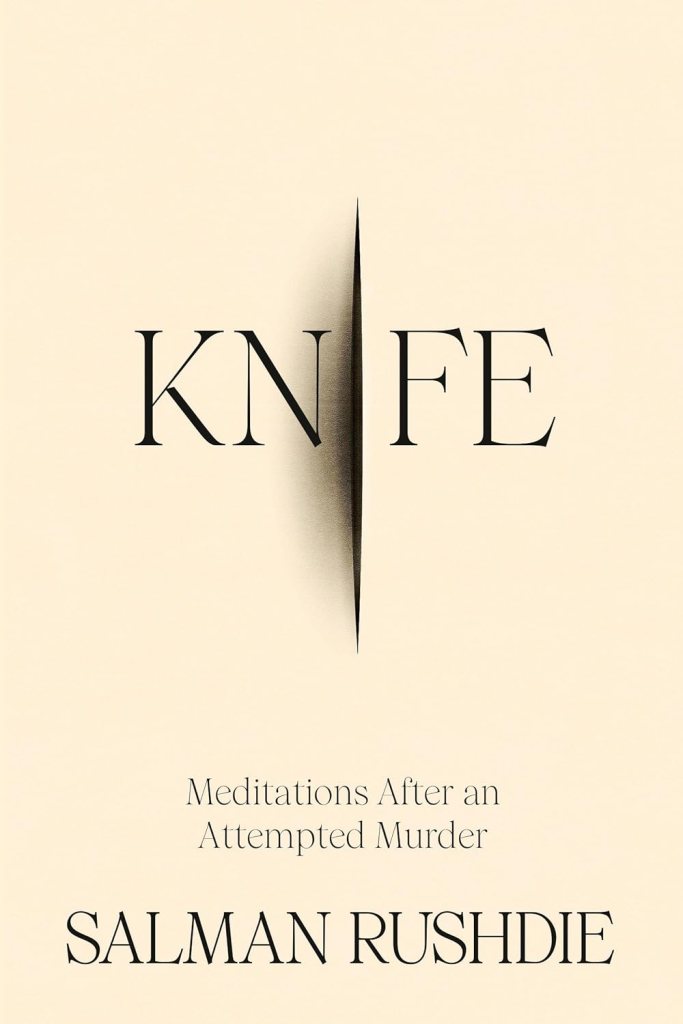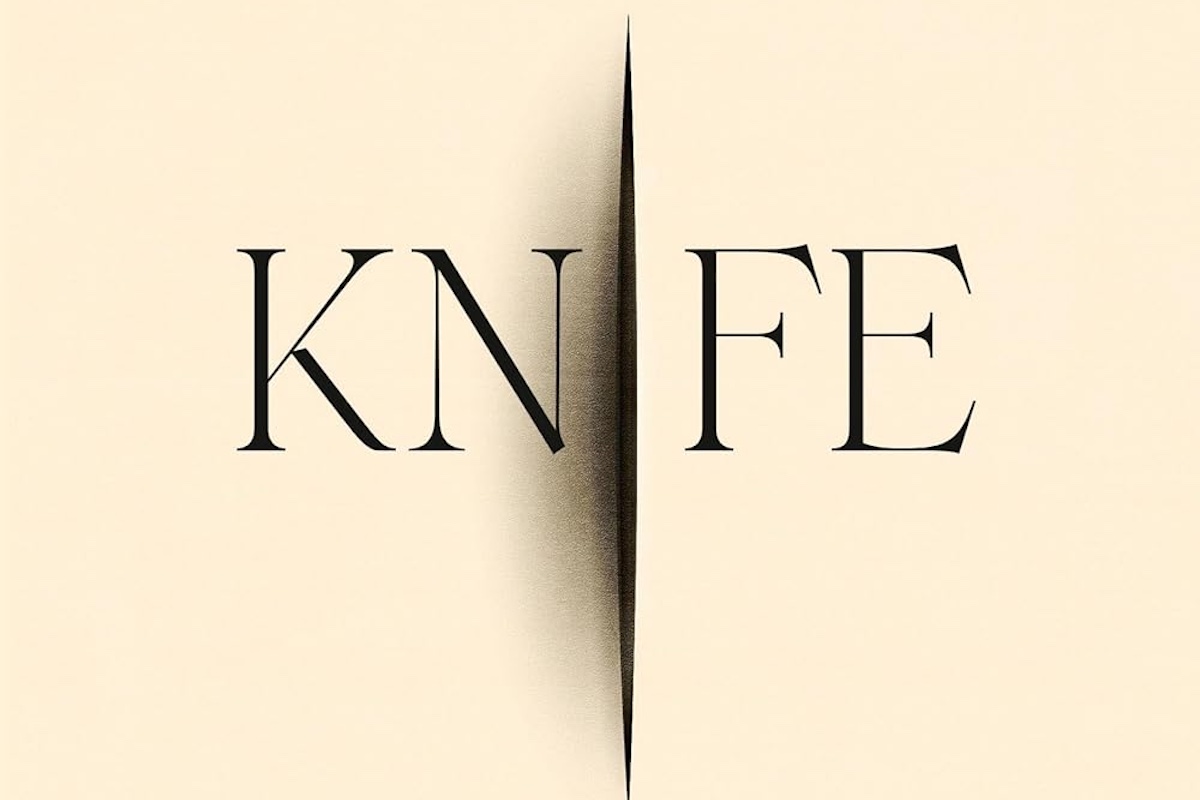
The wheels of justice turn slowly. Hadi Matar, now 27, was sentenced this past February for his August 2022 knife attack on Salman Rushdie in upstate New York. Matar will spend the next three decades in jail. On the one year anniversary of the attack, which very nearly ended his life, and cost him an eye, Rushdie realized that his anger had faded. Time, therapy, and the support he received from his wife Eliza, his grown children, and old friends helped deaden the memory. But perhaps it was the life-affirming act of writing Knife that really helped Rushdie over the line. “The attack felt like a large red ink blot spilled over an earlier page. It was ugly, but it didn’t ruin the book.”
Rushdie recounts a story about Samuel Beckett, another writer who survived a stabbing. Unlike Beckett, however, Rushdie never had a chance to confront his attacker. Rushdie conjures his “Samuel Beckett moment” in Chapter Six, inventing an imaginary conversation with his assailant. It’s one of the best parts of the memoir. “Because, in your tradition,” says Rushdie to his would-be murderer, “the idea of God is that He is so far superior to Man, so much more exalted, that He shares no human qualities.” His assailant, who learned his beliefs from a cleric on YouTube, agrees that God has no human qualities. Rushdie asks if love is a human quality. What about the desire for justice? Mercy? Isn’t language a human quality?
The lessons drummed into Hadi Matar’s head reaffirm that extremism in any form is inherently hostile to logic, reasoning, and critical scrutiny; it is dismissive of facts, contemptuous of nuance, and most importantly, acknowledges no doubt. The extremist phenomenon is visible in this political moment in the United States. Openness and pluralism are condemned, facts rejected out of hand, facile certainty is equated with strength.
Like his contemporary, the late Christopher Hitchens, Rushdie is an unapologetic atheist, drawing a sharp distinction between private religious faith and public, politicized ideology. “In private life, believe what you will. But in the rough-and-tumble world of politics and public life, no ideas can be ring-fenced and protected against criticism.” Rushdie spent nine years living under threat of a fatwa issued by the Supreme Leader of Iran. After his novel, The Satanic Verses appeared in 1988, Rushdie became the target of credible threats of violence from Muslims who believed the novel to be blasphemous. His entire life was upended. Rushdie documented the stress, uncertainty, and absurdity of these years in the memoir Joseph Anton. On the day he walked across the stage in upstate New York, Rushdie, then 75, believed the dangers of the Fatwa period were behind him; he was relatively healthy, in love, and his latest novel, Victory City, was about to be published. Life was good, very good.
Matar wasn’t even born when the Fatwa was issued, and admitted to reading only a few pages of The Satanic Verses, and yet here he was, advancing across the stage with knife in hand, slashing, stabbing, gouging; the attack lasted less than half a minute. In the hospital Rushdie wondered why he hadn’t acted, fought back, defended himself, and alternated between feelings of embarrassment and the clear-headed realization that there was nothing he could have done. Targets of violence, Rushdie reasoned as the days in the hospital passed, experienced a crisis in their understanding of the real. A stage is a performance space, not a killing field.
For a memoir about a brutal attempted murder, Knife is sanguine about hope, the power of art, and the healing potential of love. Rushdie pondered the miraculous circumstances of his survival and recovery. “But I also wanted to think about miracles,” he writes, “and about the irruption of the miraculous into the life of someone who didn’t believe that the miraculous existed, but who nevertheless had spent a lifetime creating imaginary worlds in which it did.”
This review originally appeared in the California Review of Books.


